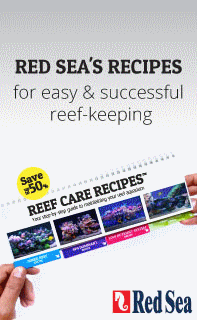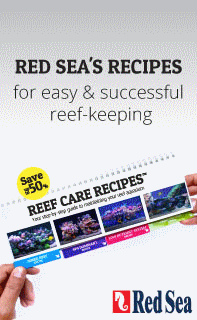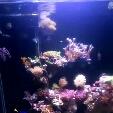How to spend wisely and hedge failures
-
Topics
-
Latest Update
-
0
wtb nudibranch
anyone have spare nudi to give away or selling ? im looking 5 pcs of them Sent from my 22031116BG using Tapatalk -
0
EXTRAWD - Agen Slot88 Terpercaya Paling Menguntungkan
KLIK LINK GACOR DI BAWAH INI LINK LOGIN DISINI LINK DAFTAR DISINI LINK ALTERNATIF DISINI Slot88 merupakan salah satu brand provider gaming yang ada di Indonesia, gamenya bisa dengan mudah ditemukan di sebuah website taruhan. Namun jika ingin produk dan pilihan permainannya banyak, maka Anda dapat menemukannya di sebuah situs taruhan resmi. Maksud dari resmi disini adalah nanti fasilitas dan fitur bermain yang dihadirkan akan sangat banyak, membantu pemain mendapatkan kemudahan taruhan yang lebih mudah. Pun tentu saja kemudahan memenangkan permainannya lebih gampang. Nah, pada kesempatan kali ini akan dibahas lengkap terkait dengan bagaimana keuntungan dan apa saja kelebihan jika slot dari provider Slot88 dimainkan di sebuah agen lokal terpercaya. Pun tentu saja situs terbaru, yang hadir memberikan layanannya di tahun 2024 secara baru. Untuk informasi lengkap tentang menguntungkannya bagaimana, yuk langsung simak penjelasan berikutnya. Jika nanti Anda tertarik karena sumber keuntungan tersebut dan tawaran kelebihannya, maka bisa langsung membuat akun taruhan baru. Permainan slot sangatlah menguntungkan, namun tentu akan menguntungkan dengan beberapa catatan tertentu. Salah satunya adalah games diakses berkualitas, dimainkan di sebuah agen terpercaya yaitu EXTRAWD. Serta produk game slotnya menguntungkan dan aman dimainkan seperti dari Slot88. Kelebihan Bermain Slot88 di Agen Slot Online EXTRAWD Penting untuk diketahui terlebih dahulu, bahwa pada dasarnya tingkat pencarian terhadap permainan slot online di dunia sangatlah tinggi. Pun hal tersebut berlaku juga di Indonesia, yang notabene kita tahu seperti apa regulasi serta ketentuan berlaku mengenai permainan taruhan di Indonesia. Hal tersebut diperjelas dengan banyaknya pilihan agen situs taruhan, sebagai website sekaligus media bisa digunakan sebagai tempat untuk bermain. Namun di samping hal tersebut, pemain harus pintar memilah juga memilih brand situs taruhannya. Karena persaingannya ketat, tingkat pencarian terhadap website sangat tinggi. Yang dikhawatirkan akan terjebak dalam penggunaan agen palsu, dan tentu saja jika demikian terjadi Anda akan menanggung kerugiannya. Nah, oleh karena hal tersebut maka usahakan untuk dapat bergabung di sebuah situs terpercaya serta berpengalaman. Karena beberapa keuntungannya ketika bermain Slot88 akan didapatkan, apa saja? Bonus terbanyak Kelebihan pertama yang bisa dirasakan dan didapatkan oleh seorang pemain, termasuk Anda sendiri saat memainkan Slot88 di website terpercaya. Adalah tersedianya layanan bermain selama 24 jam, tanpa adanya keterbatasan waktu khusus. Jadi, nanti bermainnya bisa memilih di waktu 24 jam. Untuk berkomunikasi dengan admin pun demikian, layanannya selalu siap memberikan bantuan melalui fitur live chat yang disediakan. Penyediaan Banyak Bonus Berikutnya, pemain berhak mendapatkan keuntungan tidak hanya sekedar dari mengalahkan permainan slotnya saja. Namun juga berkesempatan banyak mendapatkan komisi bonus yang dihadirkan oleh pengelola, atau admin. Bonus yang dihadirkan juga beragam, dimana pemain berhak mendapatkan bonus new member atau bagi member baru. Bonus referral, bonus deposit, bonus freebet, atau bahkan bonus-bonus bulanan hingga mingguan yang pasti menguntungkan bagi pemain. Semua bonusnya berhak didapatkan oleh semua player, dan semua komisinya juga berhak diklaim. Selama syarat serta ketentuan klaim terpenuhi dengan baik, maka player dipastikan berhak mendapatkan komisinya secara real. Akses Transaksi Mudah Ya, kemudahan transaksi untuk bermain Slot88 sangat terjamin. Dimana pemain bisa merasakannya lewat metode transaksi yang disediakan sangat lengkap. Dimana pengelolanya menghadirkan metode menggunakan rekening, menggunakan e-wallet serta dipersilahkan menggunakan pulsa. Kemudahan ini tentu saja memberikan akses kepada pemain yang tidak memiliki salah satu metode dan bisa menjadikan metode lain sebagai alternatif. Website Fleksibel dan Mudah Digunakan Kemudahan ini didukung dengan desain website sangat sederhana, namun tetap mewah ketika digunakan. Dan maksudnya adalah tampak lebih wah, atau lebih profesional saat dikunjungi. Untuk beberapa menit, opsi juga fungsi layanannya juga mudah ditemukan. Hal ini sebagai salah satu bentuk layanan terbaik, dan keunggulan bagi siapa saja yang menggunakannya. Termasuk pemula.Keamanan Terjamin Penting untuk diperhatikan, bahwa keamanan nyatanya jadi salah satu hal penting di dalam aktivitas taruhan pada agen lokal. Keamanan akan buat taruhan jadi lebih aman, lebih untung dan tentu saja konsentrasi bermain bisa lebih baik. Sistem keamanan dihadirkan oleh situs terpercaya sangat baik, mencakup keamanan website. Keamanan pemain, serta keamanan dana yang digunakan oleh player untuk bermain taruhan. -
0
EXTRAWD - Agen Slot Gacor Terpercaya Paling Menguntungkan
KLIK LINK GACOR DI BAWAH INI LINK LOGIN DISINI LINK DAFTAR DISINI LINK ALTERNATIF DISINI Permainan slot sangatlah menguntungkan, namun tentu akan menguntungkan dengan beberapa catatan tertentu. Salah satunya adalah games diakses berkualitas, dimainkan di sebuah agen terpercaya yaitu EXTRAWD. Serta produk game slotnya menguntungkan dan aman dimainkan seperti dari Slot88. Slot88 merupakan salah satu brand provider gaming yang ada di Indonesia, gamenya bisa dengan mudah ditemukan di sebuah website taruhan. Namun jika ingin produk dan pilihan permainannya banyak, maka Anda dapat menemukannya di sebuah situs taruhan resmi. Maksud dari resmi disini adalah nanti fasilitas dan fitur bermain yang dihadirkan akan sangat banyak, membantu pemain mendapatkan kemudahan taruhan yang lebih mudah. Pun tentu saja kemudahan memenangkan permainannya lebih gampang. Nah, pada kesempatan kali ini akan dibahas lengkap terkait dengan bagaimana keuntungan dan apa saja kelebihan jika slot dari provider Slot88 dimainkan di sebuah agen lokal terpercaya. Pun tentu saja situs terbaru, yang hadir memberikan layanannya di tahun 2024 secara baru. Untuk informasi lengkap tentang menguntungkannya bagaimana, yuk langsung simak penjelasan berikutnya. Jika nanti Anda tertarik karena sumber keuntungan tersebut dan tawaran kelebihannya, maka bisa langsung membuat akun taruhan baru. Kelebihan Bermain Slot88 di Agen Slot Online EXTRAWD Penting untuk diketahui terlebih dahulu, bahwa pada dasarnya tingkat pencarian terhadap permainan slot online di dunia sangatlah tinggi. Pun hal tersebut berlaku juga di Indonesia, yang notabene kita tahu seperti apa regulasi serta ketentuan berlaku mengenai permainan taruhan di Indonesia. Hal tersebut diperjelas dengan banyaknya pilihan agen situs taruhan, sebagai website sekaligus media bisa digunakan sebagai tempat untuk bermain. Namun di samping hal tersebut, pemain harus pintar memilah juga memilih brand situs taruhannya. Karena persaingannya ketat, tingkat pencarian terhadap website sangat tinggi. Yang dikhawatirkan akan terjebak dalam penggunaan agen palsu, dan tentu saja jika demikian terjadi Anda akan menanggung kerugiannya. Nah, oleh karena hal tersebut maka usahakan untuk dapat bergabung di sebuah situs terpercaya serta berpengalaman. Karena beberapa keuntungannya ketika bermain Slot88 akan didapatkan, apa saja? Bonus terbanyak Kelebihan pertama yang bisa dirasakan dan didapatkan oleh seorang pemain, termasuk Anda sendiri saat memainkan Slot88 di website terpercaya. Adalah tersedianya layanan bermain selama 24 jam, tanpa adanya keterbatasan waktu khusus. Jadi, nanti bermainnya bisa memilih di waktu 24 jam. Untuk berkomunikasi dengan admin pun demikian, layanannya selalu siap memberikan bantuan melalui fitur live chat yang disediakan. Penyediaan Banyak Bonus Berikutnya, pemain berhak mendapatkan keuntungan tidak hanya sekedar dari mengalahkan permainan slotnya saja. Namun juga berkesempatan banyak mendapatkan komisi bonus yang dihadirkan oleh pengelola, atau admin. Bonus yang dihadirkan juga beragam, dimana pemain berhak mendapatkan bonus new member atau bagi member baru. Bonus referral, bonus deposit, bonus freebet, atau bahkan bonus-bonus bulanan hingga mingguan yang pasti menguntungkan bagi pemain. Semua bonusnya berhak didapatkan oleh semua player, dan semua komisinya juga berhak diklaim. Selama syarat serta ketentuan klaim terpenuhi dengan baik, maka player dipastikan berhak mendapatkan komisinya secara real. Akses Transaksi Mudah Ya, kemudahan transaksi untuk bermain Slot88 sangat terjamin. Dimana pemain bisa merasakannya lewat metode transaksi yang disediakan sangat lengkap. Dimana pengelolanya menghadirkan metode menggunakan rekening, menggunakan e-wallet serta dipersilahkan menggunakan pulsa. Kemudahan ini tentu saja memberikan akses kepada pemain yang tidak memiliki salah satu metode dan bisa menjadikan metode lain sebagai alternatif. Website Fleksibel dan Mudah Digunakan Kemudahan ini didukung dengan desain website sangat sederhana, namun tetap mewah ketika digunakan. Dan maksudnya adalah tampak lebih wah, atau lebih profesional saat dikunjungi. Untuk beberapa menit, opsi juga fungsi layanannya juga mudah ditemukan. Hal ini sebagai salah satu bentuk layanan terbaik, dan keunggulan bagi siapa saja yang menggunakannya. Termasuk pemula.Keamanan Terjamin Penting untuk diperhatikan, bahwa keamanan nyatanya jadi salah satu hal penting di dalam aktivitas taruhan pada agen lokal. Keamanan akan buat taruhan jadi lebih aman, lebih untung dan tentu saja konsentrasi bermain bisa lebih baik. Sistem keamanan dihadirkan oleh situs terpercaya sangat baik, mencakup keamanan website. Keamanan pemain, serta keamanan dana yang digunakan oleh player untuk bermain taruhan. Sistem aman dan terpercaya dengan proteksi akun kuat Nah, kelebihan satu ini nampaknya jadi salah satu kelebihan yang paling banyak dinantikan. Dimana pemainnya berhak mendapatkan akses bermain yang murah, terjangkau atau tidak mahal. Murahnya akses melakukan deposit memang subjektif, namun jika minimal depositnya minimal kurang dari 5 Ribu Rupiah. Apakah akan Anda sebut mahal? Jelas sangat murah bukan? Banyak Games Disediakan Selain permainan slot, dan selain permainan slot dari Slot88. Secara resmi Anda pun berhak memainkan permainan casino lain, selain slot juga selain provider Slot88. Permainan casino yang bisa ditemukan dari agen lokal 2024 terpercaya dan berpengalaman, adalah roulette online. Kemudian permainan sicbo online, permainan Dragon Tiger, atau beberapa jenis permainan casino online lainnya. Begitu juga dengan providernya, Slot88 tidak menjadi satu-satunya brand provider gaming yang bisa Anda akses juga mainkan. Tersedia Tutorial Bermain Jika merasa kebingungan dengan aturan main dari games yang akan dimainkan, termasuk produk game slot dari Slot88. Maka Anda sebagai pemainnya tidak perlu khawatir, sebab pengelola secara gratis dan mudah menyediakan tutorial bermain. Yang bisa diakses kapan saja, sesuai kebutuhan selama 24 jam sesuai keinginan. Penyediaan Apps Mobile Gratis Nanti bermain slotnya tidak hanya bisa Anda lakukan menggunakan website atau dengan mode desktop saja. Namun juga bisa diakses menggunakan mobile apps, yang dapat dimainkan lebih praktis juga lebih modern. Hadir Link Alternatif Sistem keamanan yang tadi sudah disebutkan, didukung dengan sistem layanan link alternatif. Sebuah tautan kedua, atau cadangan yang secara resmi dihadirkan oleh pengelola. Tujuan serta fungsi utamanya, adalah memberikan akses bagi pemain, walaupun website utamanya sedang error. Disediakan Testimoni Jika ragu dengan kredibilitas websitenya, maka tidak perlu ragu. Jika ternyata nanti Anda meragukan terkait dengan kredibilitas websitenya, maka pastikan untuk bisa melihat sajian data testimoni yang dihadirkan pengelola Daftar Gampang Lalu kelebihan terakhir yang dihadirkan oleh situs penyedia games Slot88 online lokal terpercaya, adalah akses daftar yang super gampang. Dengannya, pemain bisa dengan mudah juga gampang saat proses registrasi dilakukan secara cepat. Nah, apakah Anda tertarik untuk bergabung di agen resmi dan memainkan slot dari Slot88 di EXTRAWD? Jika demikian terjadi, maka Anda bisa segera mendaftarkan diri jadi member di situsnya. Bekal untuk jadi member di situs tersebut mudah, calon pemain Slot88 tinggal mempersiapkan rekening bank. Kemudian username, kata sandi, nomor HP, hingga kode referral jika teman Anda memilikinya. Dengan ketentuan, kelebihan, data sebagai syarat untuk memberikan taruhan online di atas. Maka Anda bisa segera gabung dengan agen lokal Slot88 terpercaya, sehingga nanti bisa jadi member resminya.- wrasse
- yuma bicolor
-
(and 1 more)
Tagged with:
-
0
wts zoas
omega zoas petroglyphs mind tricks gmk utter chaos xc illusionist magician selling these frags pm if interested or whatsapp 88604964 -
0
EXTRAWD : Akun Demo Slot Pragmatic Play Gratis Gampang Maxwin x1000
KLIK LINK GACOR DI BAWAH INI LINK LOGIN DISINI LINK DAFTAR DISINI LINK ALTERNATIF DISINI EXTRAWD adalah situs penyedia slot pragmatic play demo gratis kredit rupiah yang paling gampang menang hingga maxwin x1000. Yang dimana seperti kita ketahui bahwa pragmatic play demo adalah provider slot gacor hari ini. Lantas karena paham akan hal tersebut kini EXTRAWD telah menjalani hubungan bilateral kepada pragmatic play demo. Dengan kerja sama tersebut maka kini EXTRAWD sudah bisa menyediakan akun demo slot pragmatic play terlengkap secara gratis. Tentu dengan begitu maka slotomania bisa mencoba ratusan game slot pragmatic play demo terbaru untuk merasakan sensasi maxwin x1000. Akun slot pragmatic play demo yang telah disediakan oleh EXTRAWD juga memiliki fitur yang lengkap. Sehingga bisa dikatakan akun demo slot pragmatic play tersebut mirip asli. Akun slot demo terlengkap yang telah tersedia pada link EXTRAWD juga telah menggunakan kredit rupiah Indonesia. Hal ini dengan sengaja kami hadirkan kepada para bettor agar bisa lebih mudah memahami fitur lengkap dari akun slot demo. Meskipun akun demo slot pragmatic play tersebut dihadirkan secara gratis oleh EXTRAWD. Bukan berarti akun demo tersebut memiliki kekurangan, hal ini terbukti dengan adanya fitur lengkap serta game demo slot pragmatic play terbaru pada link resmi EXTRAWD. Maka dari itu pastikan anda memanfaatkan akun slot demo pragmatic play mirip asli ini sebelum kehabisan kuota. Akun Demo Slot Gratis Kredit Rupiah Indonesia Tanpa Lag Paling Gacor Pada Link EXTRAWD Akun demo slot gratis merupakan dambaan semua slotter Indonesia yang hendak mencoba game slot online tanpa harus menghabiskan uang rupiah. Tapi tentu saja akun demo slot terlengkap gratis cukup sulit ditemukan oleh slotomania Indonesia. Dimana seperti yang kita ketahui bahwa demo slot pragmatic play sama sekali tidak menguntungkan bandar slot online. Sehingga tidak banyak bandar slot online terpercaya yang menyediakan hal seperti akun demo slot gratis ini. Melihat keinginan besar slotomania Indonesia untuk mencoba slot gacor hari ini. Kini link EXTRAWD telah bekerja sama dengan pragmatic play untuk menyediakan server anti lag kepada semua player. Sehingga semua player slot online Indonesia bisa mendapatkan akun demo slot gratis kredit rupiah plus tanpa lag apapun. Kini telah tersedia lebih dari 20 game demo slot gratis pragmatic play terbaru kepada slotomania Indonesia yang siap untuk dicoba. Dan tentu saja semua game slot demo yang telah dihadirkan sudah dipastikan tanpa lag dan pastinya sedang gacor hari ini. Seperti demo slot gates of olympus 1000, sweet bonanza, starlight princess x1000 dan masih banyak lagi sudah tersedia pada akun demo slot gratis. Oleh karena itu pastikan anda mendapatkan slot akun demo slot gratis kredit rupiah Indonesia tanpa lag dan pastinya paling gacor pada situs resmi EXTRAWD sekarang juga. 20 Slot Demo Gratis Paling Gampang Menang Maxwin x1000 Slot demo gratis adalah layanan uji coba game slot online yang dihadirkan kepada semua slotomania di berbagai belahan dunia. Meskipun slot demo gratis diberikan oleh pragmatic play secara free, tetapi tidak sedikit bandar slot online nakal meminta biaya administrasi. Oleh karena itu EXTRAWD telah menyediakan akun demo slot terlengkap yang paling gacor parah hingga gampang menang dan maxwin x1000. Tak hanya itu saja, kini EXTRAWD juga telah merangkum 20 slot demo gratis paling gampang menang. Sehingga slotomania bisa merasakan sensasi mendapatkan maxwin x500 ataupun x1000 di berbagai game slot online pragmatic demo. Demo Slot Sweet Bonanza Pragmatic Play Gratis Kredit Rupiah Pragmatic play adalah penyedia game demo slot online seperti demo sweet bonanza secara gratis kepada slotomania. Melalui tema buah serta permen, slot demo sweet bonanza berhasil menarik perhatian para slotter Indonesia untuk mencoba bermain. Lantas karena itu kini demo slot sweet bonanza menjadi salah satu pilihan teratas dalam bermain slot gacor hari ini. Tak hanya sampai disitu saja, bahkan kini pragmatic play juga menyediakan versi terbaru dari game slot gacor ini. Berbagai turunan versi terbaru dari sweet bonanza seperti xmas ataupun versi gold juga turut hadir dalam akun demo slot pragmatic play terlengkap pada link EXTRAWD. Slot Demo Gates Of Olympus x1000 Paling Gacor Hari Ini Gates of olympus adalah salah satu game slot online paling gacor hari ini. Bahkan ketika orang menyebutkan kata slot online ataupun slot gacor hari ini, pasti akan langsung terpikir dengan kakek zeus. Dimana seperti yang kita ketahui bahwa slot demo gates of olympus kerap kali memberikan pecahan hingga perkalian besar sampai x500 maupun x1000. Kini demo slot gates of olympus juga sudah mendapatkan update terbaru dari pragmatic play demo. Dimana demo slot zeus kini telah berubah nama menjadi gates of olympus 1000. Slot Demo Mahjong Wins Pragmatic Play Paling Gampang Maxwin Mahjong wins pragmatic play adalah salah satu slot online yang menggunakan tema judi lawas yang berasal dari negara Tiongkok. Terlepas dari itu, demo slot mahjong wins juga menjadi salah satu primadona para slotomania Indonesia. Oleh karena itu kini banyak yang mencari akun demo slot terlengkap agar bisa bermain slot demo mahjong wins pragmatic play. Bahkan kini banyak forum ataupun komunitas di berbagai jejaring sosial media yang membahas game slot demo mahjong wins pragmatic play ini. Maka dari itu pastikan anda juga mencoba bermain slot demo mahjong wins pragmatic play paling gampang maxwin di situs resmi EXTRAWD.- wanted
- after decom
-
(and 1 more)
Tagged with:
-






Recommended Posts
Join the conversation
You can post now and register later. If you have an account, sign in now to post with your account.